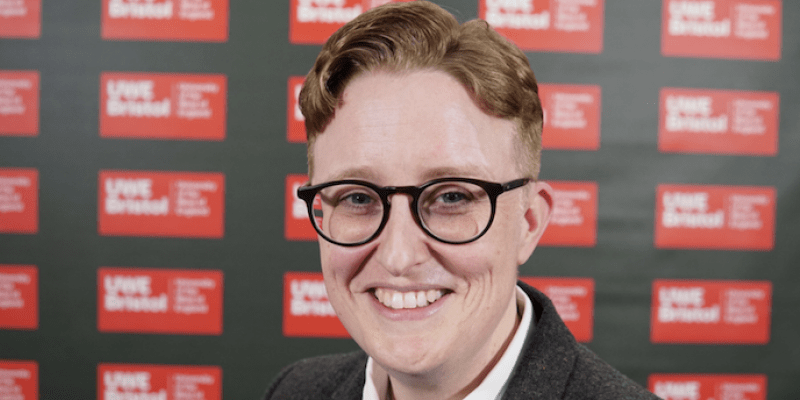
UWE, in partnership with Business West, runs an annual lecture series that brings top business leaders to Bristol. We caught up with Ruth Hunt, CEO of Stonewall, before she gave her address:
1. What is Stonewall?
Stonewall is a charity in the United Kingdom - we are thirty years old this year.
We were set up in response to section 28, which was a piece of legislation preventing the promotion of homosexuality in schools.
So, we were set up very much as a campaigning and lobbying organisation, and that’s what we’ve done throughout.
We work very hard to change the law, but also to change hearts and minds through all sorts of different programmes of work, interventions, campaigns and ways of working.
2. How do you lead an organisation like Stonewall?
I think being a leader in a context like this requires a huge degree of humility and a capacity to hear what’s going on, but I think at Stonewall we’ve got a clear sense of our purpose.
We’re very lucky in that.
We’re here to make the lives of lesbian, gay, bi and trans people better.
In all my time at Stonewall - I’ve been here for 14 years having started as a policy officer – there is nothing that hasn’t been subject to debate.
Whether it was the rights of gay men to adopt children or the age of consent or gay people in the military or same sex marriage and civil partnerships, everything has come with a deeply held belief and diametrically opposed views.
I think Stonewall’s role has always been to stand firm on what we know is right, stand firm on being on the right side of history, but to find ways to accommodate the differences.
There are some people that exist on the outskirts of that reasonableness, and you can’t really do much about that. But I think what’s different in the last five years is that those extreme ends have filtered into daily discourse through social media.
3. Were you in to campaigning as a student?
Yes, I was president of my college and then president of the student union, so I was definitely a campaigner.
What I learnt was that negotiating and navigating change requires a lot of time, a lot of persistence and a willingness to move with the times and nudge people along.
I’m very aware that a lot of the things I experienced growing up, young people today would just call it blatant discrimination. My generation learned to go: “OK, we accept that, but have you thought about it from a different angle?”
So, I can understand why the generation ahead of me are angry and have had enough of trying to persuade people to be nice to them.
However, I’ve also learnt that anger doesn’t achieve change.
Anger is incredibly important, it’s important that we acknowledge how things make us feel, but tactically it doesn’t change much.
It’s about that balance between finding the tactics and the strategy to achieve change.
4. Do you have any advice for young people on how to cope with the pressures of social media?
I think social media should be taken in small doses in a time limited way.
I think it is a useful medium for communication and connecting. I came out when I was 13 in Cardiff. It was 1993 there was no network whatsoever and to be able to go on social media and find a group of people like me would’ve been very helpful, but it’s about knowing when to put the phone down.
We have to work very hard at Stonewall to know what is truly reflective of public opinion and what is reflective of a small minority of people, so it is a platform and a vehicle and should be used carefully.
I think we’ve all become a bit too comfortable with it being an extension of our social lives.
5. What are the challenges of the next decade for Stonewall?
Sport is a frontier that we’ve made very little progress on.
There are no openly gay players in male Premier League football.
A cricketer recently challenged the use of the word ‘gay’ as a pejorative term – that was a real moment, as it’s the kind of thing that’s been going on in schools for ages.
So, sport feels very new in terms of some of the work that is going on.
International work is a real challenge for us. A lot of countries have our colonial laws and we have a duty to dismantle some of those.
We’re also aware that as a world we’re in quite a dark place and people who are different are experiencing more hostility than before.
It is sometimes assumed that diversity and inclusion is a linear journey, but it’s not, it goes backwards and forwards, and at Stonewall we’re aware that we’re in a slight back phase at the moment.
So, there’s lots to do.
This series of free public lectures brings top level business leaders to Bristol. You can discuss these events on Twitter using the hashtag #BristolLectures and view further content from Ruth Hunt's lecture here. For more information please contact events@uwe.ac.uk.
- Log in to post comments
